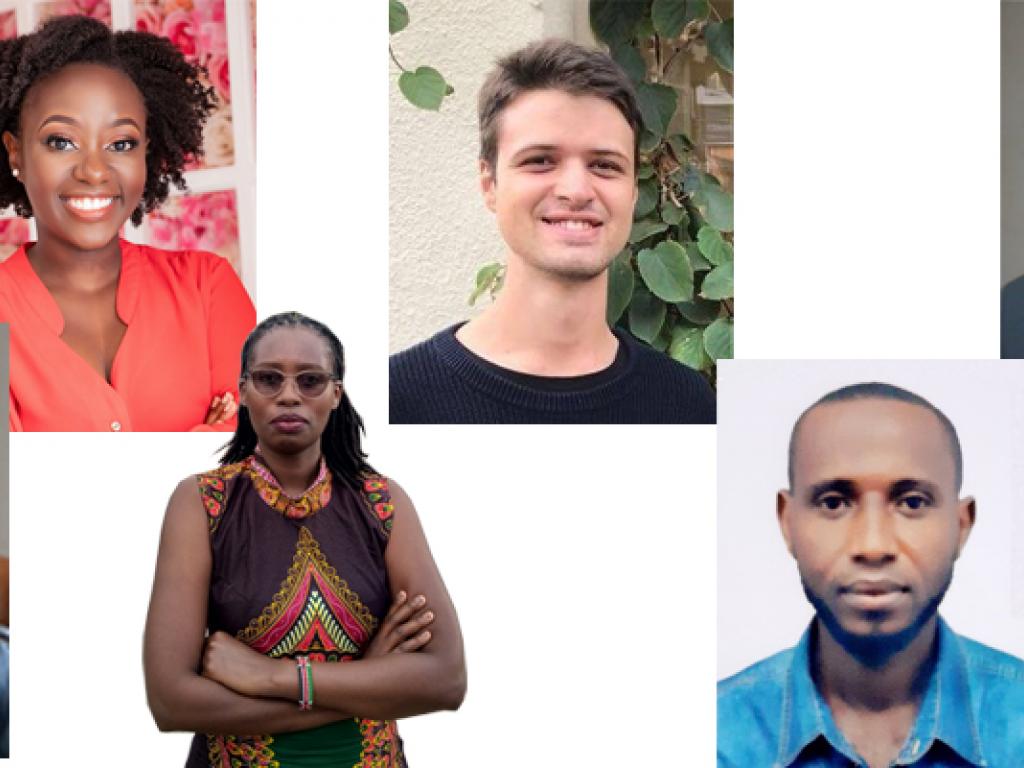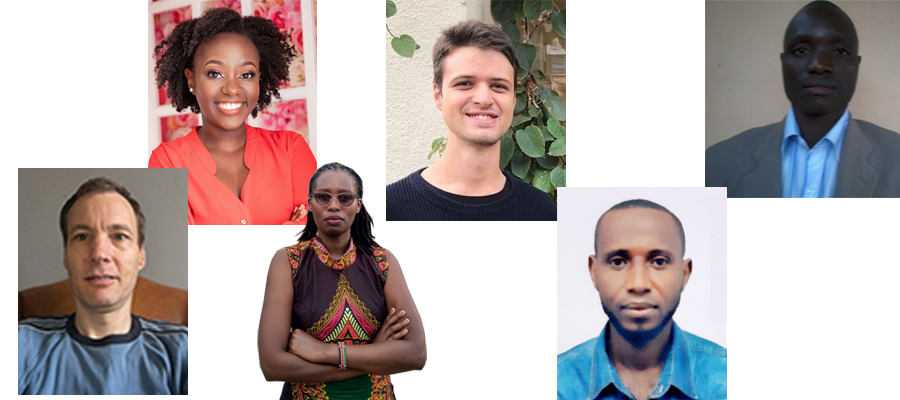Introducing HPI’s 2021 cohort


A new cohort of PhD students have joined the 2021 programme of the Hasso-Plattner Institute Research School at UCT.
As a gateway for educating sub-Saharan African information technologists, the HPI Research School supports PhD and postdoctoral research in information and communications technology for development (ICT4D). The school is financially supported by the Hasso Plattner Institute for Digital Engineering.
Six students joined the school in 2021, working on a variety of research projects.
Information Systems student David Sanka Laar has identified SMEs as important drivers of the economy of developing countries that must implement new and innovative strategies through business process redesign to help cope with: competition, changing technologies, customer and regulatory requirements, and limited resources. With this in mind, Laar is working on an Evolutionary Agile business process redesign approach. “As an ICT4D researcher, I have been looking for an institution and programme with the requisite resources to support my PhD research which aims at developing methods for process innovation in small enterprises. Gaining a place at the HPI Research School at UCT is a dream come true. So far so good! For the few months that I have been with the school, I have participated in a number of virtual Colloquiums and Symposia hosted by the UCT and Potsdam schools. The exposure and guidance from the seasoned professors and industry-thought leaders is tremendous in shaping my research directions and career aspirations.”
Francois Meyer is also with the Computer Science Department and is researching text Generation for low-resource languages. “I am designing neural language models that learn more efficiently by modelling language at the morphological level. Previously I completed my masters in AI at the University of Amsterdam, and my undergraduate studies at Stellenbosch University in South Africa.” The HPI Research School provided Meyer exactly what he was looking for in a PhD position. “It provides students with the opportunity to work on cutting-edge research with special relevance to the African context, while opening up international influences through interaction with overseas HPI schools. This combination of local and international means that the best of both worlds is possible.”
Rebecca Njuguna, an Information Systems student is researching how best to use data from informal financial institutions for alternative credit scoring. “More than 1.7billion adults today still have no access to financial services like bank accounts and credit. One credit access barrier is lack of credit scores to determine credit-worthiness.” Her work explores the possibilities of using data from informal financial activities being incorporated into alternative credit scoring algorithms. She explains her decision to join the HPI Research School: “While undertaking my masters, there were three PhD students whose work ethic I admired and when I got to know about their research at the SIT symposium 2019, their projects sounded very interesting, and I thought to myself that I'd like to carry out PhD research with that level of depth and relevance to practice. Later I learnt that two of them were HPI scholars and that was my first interaction with HPI. That was when I made the decision to apply when the next call was due.” Njuguna found that the sense of community she feels being part of the HPI Research School especially through the regular meetings serves as a great source of motivation.
With the Department of Computer Science, Mbithe Nzomo is broadly interested in Artificial Intelligence for Development (AI4D), with her research focus being agent-based computing and machine learning for healthcare in Africa. “I'm keen to explore how AI can contribute to development in sub-Saharan Africa. The HPI Research School at UCT has a strong focus on ICT4D in the African context, and so it was a good fit. The available supervisors come from a wide range of IT subfields, and so I was able to find a fantastic supervisor with expertise in my area of interest.” Nzomo’s research is conducted within the Adaptive and Cognitive Systems Lab, part of South Africa's Centre for Artificial Intelligence Research (CAIR) network. “I really enjoyed attending the HPI Research Symposium in April, where I got to virtually meet and interact with faculty, students, and alumni from the different HPI research schools around the world. Joining a vibrant global research community is definitely one of my favourite things about being part of HPI.”
With the Department of Information Systems, Safianu Omar’s research looks at adapting Information and Communication Technology (ICT) initiatives in crisis response and management. ICT plays an essential role during crisis situations. However, literature and research works have shown that ICT service management and ICT governance methods are barely used or even unknown to decision makers within the domain of crisis management. “It is therefore significant to investigate how ICT initiatives and crisis management can be aligned, adapted and managed in order to improve preparation and response,” writes Omar. “After my MSc degree, I had been yearning to join a programme with an interdisciplinary nature and I was happy to see that the HPI research school at UCT is one of the few institutions in the world which offers exactly that. I was really excited to see the quality of the programme characterised by a discourse drawn from methodologies in computer and social sciences. I am confident that the intellectual and research skills that I will be afforded would be unmatched by most other institutions.”
Finally, Johan Bontes, a Computer Science student, is focussing his research on creating novel solvers for automated reasoning problems so that we can more efficiently solve NP(-complete) problems. In bio-informatics, DNA recombination, needed for analysis, can be done thousands of times faster using such solvers than any other method. In software development theorem provers can provide proof of correctness for source code. In short, logic solvers are arguably one of the most powerful tools in computer science and many fields could benefit from their broader application. Understanding and exploiting the internal structure of problems is key to solving them more efficiently. Collaboration with subject matter experts greatly helps in this understanding. HPI provides intercontinental collaboration and gives access to experts in different fields. This allows Johan to solve practical problems, increasing the potential impact and practical applicability of the work.
The HPI Research School annually grants scholarships to qualifying students from the African continent. Applications are open for prospective PhD and postdoctoral students in Information Systems or Computer Science with an annual deadline of 15 August. Interested students are advised to visit the website to find out about the supervisors and their fields of interest: http://www.sit.uct.ac.za/sit/research/hpi-supervisors
